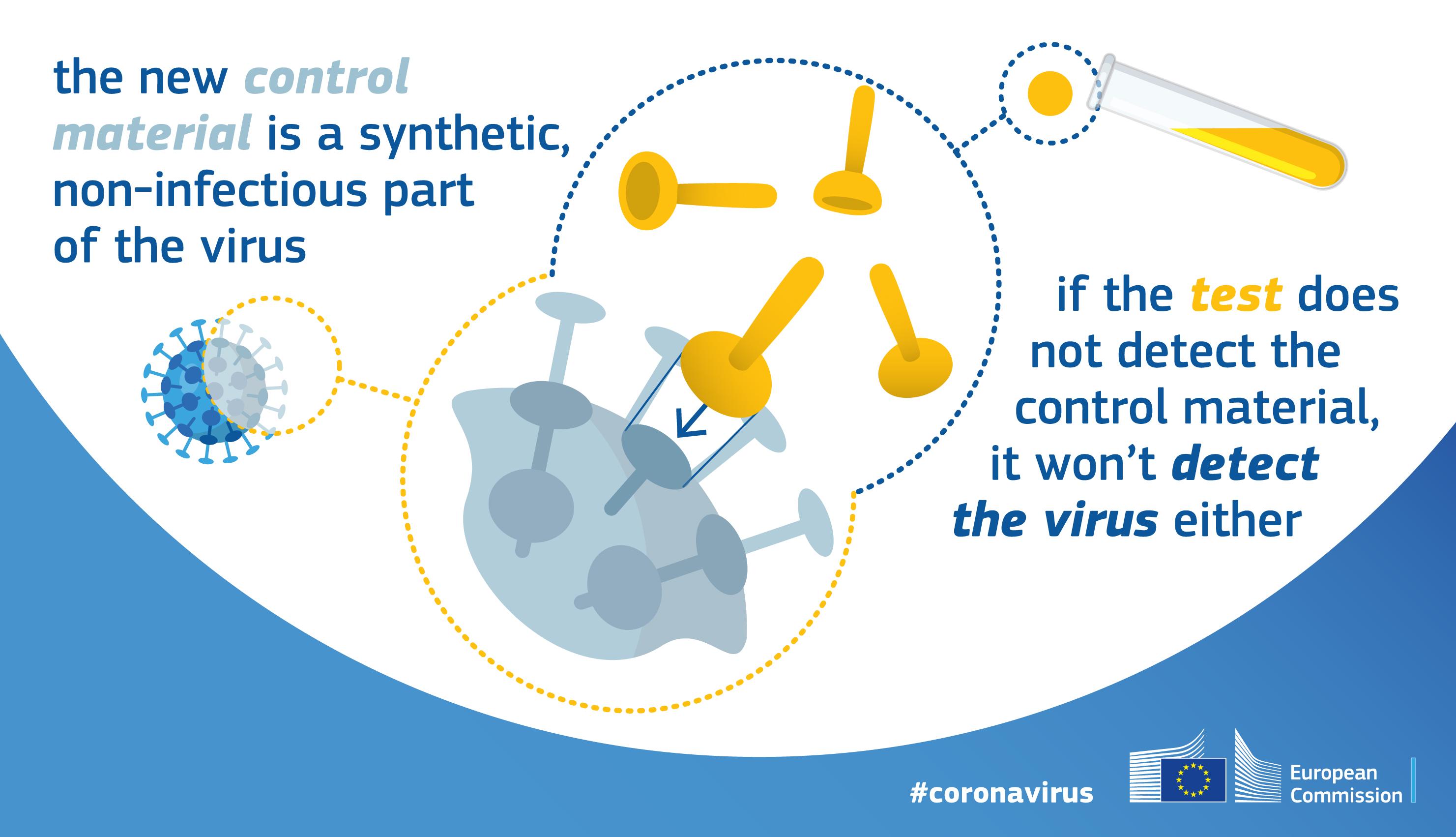
JRC actions in response to COVID-19
The European Commission’s Joint Research Centre is contributing to and informing the EU’s policy response to the coronavirus crisis. Experts across the JRC have been analysing the crisis, anticipating its impacts and working to develop solutions and strategies for the future. Some of its actions are highlighted here:
Development of new control material for COVID-19 tests
JRC scientists have designed a new control material for COVID-19 tests, amid the challenge posed by a shortage of the material currently used. The control material is important for ensuring that false negatives are as rare as possible – if the test does not detect the control material, then it will not detect the real virus. The development of this new material by the JRC means that companies can continue to produce coronavirus tests and laboratories can carry them out. The sample will be made available throughout the EU and the wider EU testing community.
New indicator for hospital bed demand
The JRC has developed an indicator of bed capacity in hospitals to help countries manage their medical response. The indicator takes into account certain territorial demographic characteristics to anticipate the demand and supply of hospital beds.
Collaboration to ease access to information
The JRC is working in collaborating with the Epidemics Intelligence for Open Sources platform (EIOS) and the World Health Organization (WHO) to collate articles related to the pandemic. This will help experts to sort through the extensive information as they track the pandemic. This data will also feed into the COVID-19 News Map, which displays recent articles related to the coronavirus outbreak by region, in their original languages.
Modelling exit strategies
The JRC is also working on potential exit scenarios for when the time comes to lift the stringent containment measures currently in force across Europe and the world. These scenarios consider many aspects including health, economy, security and social.
In collaboration with the London School for Hygiene and Tropical Medicine, Imperial College London and the European Centre for Disease Prevention and Control, the JRC is working on a modelling method to anticipate and manage risks when the measures are lifted.
This is on top of the continued research the JRC is carrying out to understand the pandemic’s impact on the economy and certain sectors such as tourism and trade.
To read more about the centre’s actions, click here.
- Hilary Webb
- 03/04/2020
-
Working Group